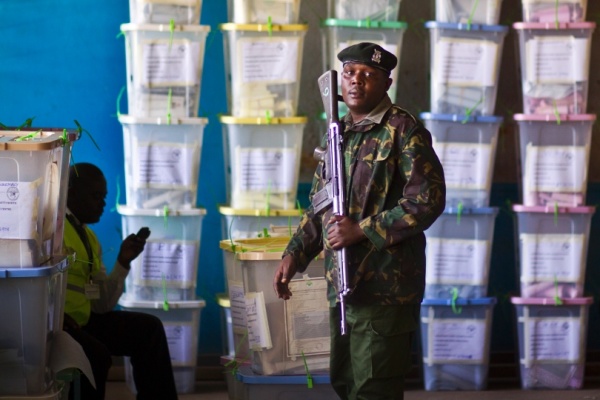A civil society group joined the Coalition for Reform and Democracy in filing a separate petition at the Supreme Court to challenge the outcome of the March 4 presidential election.
However, the African Centre for Open Governance (Africog) said their petition is not to challenge the results or the declaration of Uhuru Kenyatta as president-elect but the process the Independent Electoral and Boundaries Commission (IEBC) used to tally the final results.
The organisation had filed a similar petition at the High Court a day after the IEBC resorted to manual tallying of presidential elections. But a three-judge bench of justices Isaac Lenaola, Weldon Korir and David Majanja dismissed the petition on grounds that the High Court lacked jurisdiction to determine issues concerning presidential elections and instead referred them to the Supreme Court.
Africog claims the electoral commission violated provisions of the Constitution which required them to conduct a transparent voter tallying process.
Through lawyer Harun Ndubi, the group argues that the failure of the poll body to transmit results electronically compromised the credibility of the result transmission process.
Manual system
Africog further alleges that IEBC contravened the Constitution by resorting to a manual system and ignoring the fact that voter turnout in many constituencies was recorded as being higher than that registered.
The civil group also argues that the commission failed in its duties by refusing to account for discrepancies in the rejected votes, and that the manual tallying process was shrouded in secrecy after party agents were thrown out.
The group is seeking a declaration that the IEBC violated the Constitution and electoral laws in reaching the final results.
Meanwhile, Chief Registrar of the Judiciary Gladys Shollei said elaborate plans have been made to ensure the petitions are heard and determined within the stipulated 14 days.
Ms Shollei said the six Supreme Court judges are likely to meet on Monday or Tuesday to go through the petitions and familiarise themselves with the issues raised.
“We have made plans for public participation. We will allow live coverage of proceedings and also have a big screen outside the courtroom. The judges are also prepared to make a determination within the stipulated time,” said Shollei.
She added it was unlikely the judges would give a long ruling, saying they would only give their decision on the final days and give the reasons at a later date.
She reiterated the rules and guidelines to be followed by the petitioners from the time they filed the petitions until the day of judgment, adding that the 14 days include weekends.
The petitioners deposited Sh1 million as security and an additional Sh550,000 for publicizing it and other costs. Ms Shollei has three days to publish the petitions in the newspapers; the petitioners have the same number of days to serve all the respondents.
